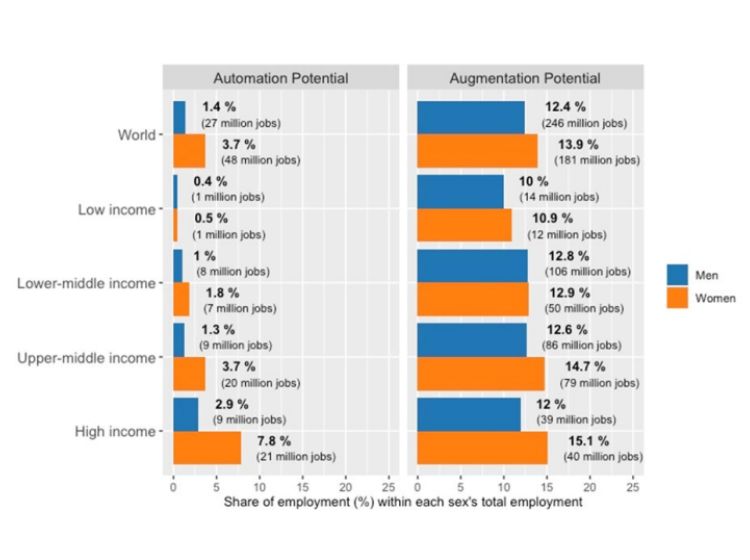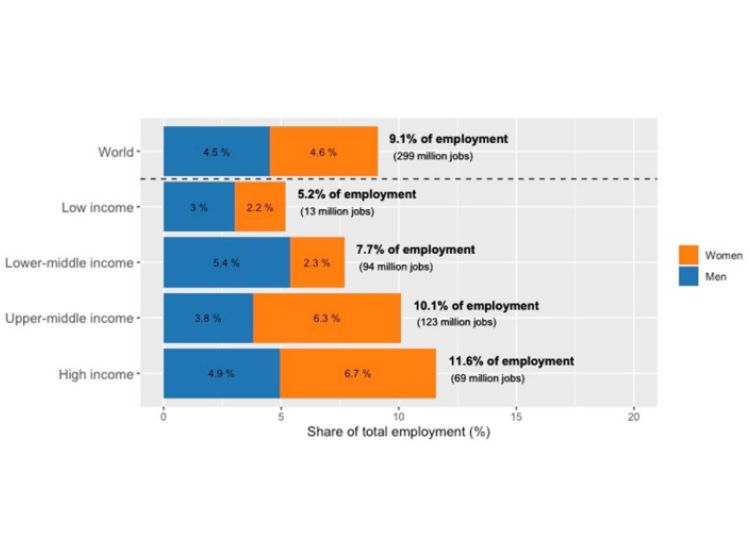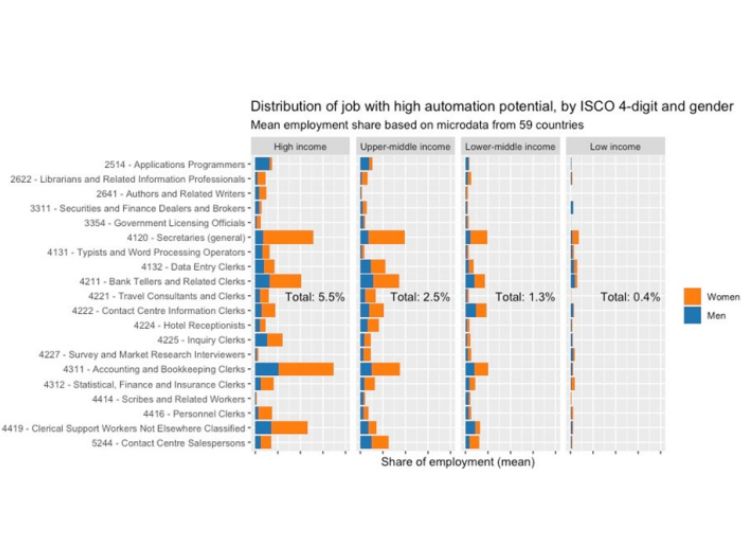Generative AI Can Automate As Many As 75 Million Jobs Globally, ILO Examine Finds

Over the previous couple of months, AI (synthetic intelligence) has prolonged its grip in all places. From the smartphones that we use to the automobiles that we drive, AI has taken heart stage amongst all fields of know-how. Not solely that, you might have unknowingly been utilizing AI in your day by day life in a roundabout way or the opposite. Now, the largest query that individuals are asking is — “Will AI substitute people and take over our jobs?” If that is one thing you might be involved about, take a look at what the Worldwide Labor Group (ILO) has to say with regard to this.
75 Million International Jobs At Danger of Automation
The ILO, in its newest generative AI assessment report, has revealed that AI holds the potential to considerably disrupt the job market of the longer term. It means that AI will play a big function in the best way work is finished shifting ahead. Nevertheless, ILO believes that this can be rather more collaborative in nature fairly than being a alternative for people.

The information printed by ILO reveals that just about 75 million jobs can be affected by automation in a roundabout way or the opposite. Which means AI holds the aptitude to probably function a alternative for nearly 70 million folks globally, each women and men.
Alternatively, the information has additionally revealed that just about 427 million jobs maintain potential for augmentation. This implies AI has the potential to vary the “high quality, depth, and autonomy” of jobs by working hand-in-hand with people to create a digitally succesful and technologically progressive future for everybody. Just lately, we additionally wrote concerning the jobs that may be changed by AI chatbots like ChatGPT sooner or later.
Ladies at Greater Danger of Automation In comparison with Males
I believe the largest revelation of this research lies in the truth that this AI transition is extremely gendered in nature. The research has revealed that nearly 21 million jobs held by ladies stand liable to automation in high-income nations. That is greater than double the variety of jobs held by males in high-income nations that face dangers of automation. The identical is true for ladies in nations with upper-middle revenue, lower-middle revenue, and low revenue.

Now, chances are you’ll ask why ladies particularly face the dangers of automation on this magnitude. The reason being the overrepresentation of girls in clerical jobs. The majority of the women-held positions that face automation dangers are clerical in nature. It’s because, for many high-income and upper-middle-income nations, the most important supply of girls empowerment and employment has been within the type of clerical jobs. Consequently, this gendered impact within the incoming technological transition will both severely have an effect on ladies or pave the best way for ladies’s empowerment.
So, What’s Subsequent for Us with Respect to AI?
This can be a scary prospect for many of you, however the actuality is that is the fact we’re already dwelling in now. AI is slowly taking up our lives and our jobs as properly. In accordance with the ILO report, AI can quickly substitute the necessity for human typists, journey consultants, scribes, contact heart data clerks, financial institution tellers, and survey & market analysis interviewers. Additionally, a big a part of this impending impact of automation will depend upon the nation you might be in and the revenue group you fall beneath.

In low-income nations, solely 0.4% of positions held by people face dangers of automation. Whereas, within the flip aspect, ~5.5% of the positions held by people in high-income nations additionally face dangers of automation. The true glimmer of hope is for folks employed in growing nations. The gradual shift to an automatic future can present vital ability growth alternatives to folks in growing nations provided that they will make use of related mitigation measures for the adverse results of automation.



